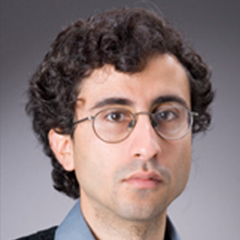An international webinar series hosted by the Institute for Advanced Studies, Adam Mickiewicz University, Poznań.
Organisers: Mateusz Stróżyński (Poznań) and Edmund Stewart (Nottingham)
To register: email matstroz@amu.edu.pl

Edmund Stewart is Assistant Professor in ancient Greek history at the University of Nottingham. Major publications include Greek tragedy on the move: the birth of a panhellenic art form c. 500-300 BC (Oxford: University Press, 2017) and (co-edited with E. Harris and D. Lewis) Skilled Labour and Professionalism in Ancient Greece and Rome (Cambridge: University Press, 2020). His articles appeared in prestigious classical journals, including the Classical Quarterly, Greek Roman and Byzantine Studies and Philologus.

Edward Harris is Emeritus Professor of Ancient History at the University of Durham; he is a leading authority on Athenian political history and institutions, Greek law and the economy of ancient Greece. Major publications include Aeschines and Athenian Politics (New York and Oxford, 1995) and Democracy and the Rule of Law in Classical Athens (Cambridge and New York, 2006) as well as numerous articles. He has co-edited with R. W. Wallace, Transitions to Empire, Essays in Greco-Roman History 360-146 B.C. (Norman, OK, 1996).

James Kierstead is Senior Lecturer in Classics at Victoria University of Wellington, where his research concentrates on ancient Greek democracy. He published several book chapters and articles in Classical journals such as Polis, Classical Quarterly, Historia: Zeitschrift für Alte Geschichte, and Gnomon. He is currently working on a book about democracy and civil society in Athens for Edinburgh University Press. He is also the founding co-ordinator of Heterodox Classics, a community linked to Heterodox Academy and dedicated to open-mindedness, viewpoint diversity, and civilized disagreement.

Xavier Marquez is an Associate Professor in Political Theory and Political Science at Victoria University, Wellington. His recent research focuses on non-democratic politics in the modern world, including authoritarianism, dictatorship, and non-democratic political thought. In particular, he is the author of Non-Democratic Politics: Authoritarianism, Dictatorship and Democratization (Macmillan, 2016). He has also published numerous articles on ancient political theory in respected journals including Ancient Philosophy and Political Studies.”

Mirko Canevaro is Professor of Greek history at the University of Edinburgh. Major publications include The Documents in the Attic Orators (Oxford: University Press, 2013); an extensive commentary of Demosthenes’ Against Leptines (De Gruyter, 2016) and a co-authored commentary of book IV of Aristotle’s Politics. He’s currently working on the deliberative structures of Athenian decision-making. He is also a lead investigator (with Douglas Cairns) on the ERC-funded research project ‘Honour in Classical Greece’

Elodie Paillard is Honorary Associate in the Department of Classics and Ancient History at the University of Sydney and Lecturer and Scientific Collaborator in the Department of Classics at the University of Basel. She is also a Partner Investigator in the Australian Research Council discovery project “Theatre and Autocracy in Ancient Greece” and co-edited Theatre and Autocracy in the Ancient World (De Boccard 2021, in press) with E. Csapo, J. R. Green, B. Le Guen, J. Stoop, and P. Wilson. She is the author of The Stage and the City. Non-élite Characters in the Tragedies of Sophocles (Paris: de Boccard, 2017). She co-edited (with S. Milanezi): Theatre and Metatheatre: Definitions, Problems, Limits (de Gruyter, 2021).

Andrew Hanssen is Professor of Economics in the John E. Walker Department of Economics at Clemson University. His areas of research include institutions, law and economics, political economy, and industrial organization. He has published numerous articles in prestigious journals such as the American Economic Review, the Journal of Law and Economics or the Journal of Legal Studies. He is associate editor of the International Review of Law and Economics and is on the editorial board of Social Science Quarterly.

Robert Fleck is Professor of Economics at Clemson University. His main fields of interest include political economy, public finance, economic history, law and economics, and development economics. He published several articles, e.g. in Journal of Political Economy, Explorations in Economic History, and Journal of Law and Economics. He has been a Julian Simon Fellow (2005) and Lone Mountain Fellow (2013, 2016) at the Property and Environment Research Center (PERC), and a National Fellow at Stanford’s Hoover Institution (2010-11).

Josiah Ober is Mitsotakis Professor in the School of Humanities and Science at Stanford University and works on historical institutionalism and political theory, focusing on the political thought and practice of the ancient Greek world and its contemporary relevance. He is the author of a number of highly influential books mostly published by Princeton University Press, including Mass and Elite in Democratic Athens (1989) and Democracy and Knowledge (2008). He has also published about 100 articles and chapters, including recent articles in American Political Science Review, Philosophical Studies, Hesperia, and Polis.
© 2023 All Rights Reserved